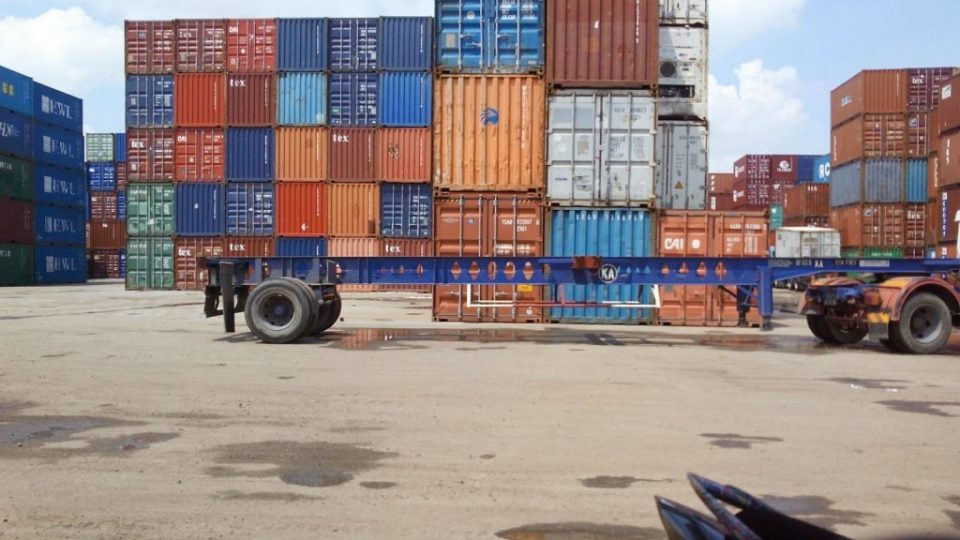KUALA LUMPUR, Feb 13 — Malaysia can position itself as a regional logistics hub as the industry is recognised as essential to stimulating trade, facilitating business efficiency and spurring economic growth.
Logistics in Malaysia has evolved in recent years, underpinned by strong growth enablers such as improved infrastructure, rising freight volumes and structural growth in e-commerce. The logistics industry is also the backbone of Malaysia’s supply chain ecosystem.
While the current market landscape is still fragmented with a large number of players across the value chain, market consolidation is expected with two broad categories of logistics providers emerging — large integrated logistics players that capitalise on their scale and reach and niche market players.
National Logistics Industry Overview
The Transport Ministry has formulated the National Transport Policy (2019 – 2030) to improve logistics connectivity to cater to the e-commerce boom, continuous ports upgrade and expansion plans, and enhance productivity and increase competitiveness.
Being the world’s 24th largest trading nation in 2021, logistics plays an integral role to enable Malaysia’s supply chain growth, and with the rise of e-commerce, companies are capitalising on this emerging trend.
Companies’ interest in emerging areas, such as cold chain logistics, last-mile delivery services and so on is growing, due to high margins and rising demand.
In this vein, the Malaysian government has laid out various efforts and plans to assist local players to move up their value chain to increase their global competitiveness.
FDI and International Integrated Logistics Services
A government initiative to promote logistics industry growth is the international integrated logistics services (IILS) status. It is granted to companies capable of providing integrated and seamless logistics services door-to-door along the value chain as a single entity on a regional or global scale.
The IILS status does not impose any equity restrictions and encourages foreign direct investment (FDI) inflows into Malaysia through direct establishment or collaboration with local players.
Malaysian Investment Development Authority (Mida) services development executive director Zuaida Abdullah said initiatives such as the integrated logistics services (ILS) incentive and IILS status are seen as stepping stones for local companies to provide comprehensive services to further expand their market, serving both domestic and global markets.
“Mida has enlisted the help of several multinational ILS providers to collaborate on the development of the local industry. Through these engagements, several memoranda of understanding (MoU) were signed to strengthen these collaborations. Partnerships and co-innovation will be increasingly vital to transform the industry,” she told Bernama at Mida’s headquarters recently.
Mida has signed MoUs with AP Moller-Maersk (Maersk) and DHL to drive high-quality investments into Malaysia as an Asean logistics hub. The memoranda aim to create better synergies and value-added services for customers, as well as contribute to the growth and development of the supply chain sector in the local economy.
Furthermore, these MoUs are expected to benefit local players by leveraging multinational companies’ (MNCs) capabilities in integrated logistics ecosystems.
Zuaida said Mida continues to promote the industry’s development through the ILS incentive and the IILS status programmes and aspires to nurture more local companies to become future regional or global players.
“Since the introduction of the IILS status in 2008, Mida has issued approvals for 259 IILS status, the majority of which were Malaysian-owned logistics companies. Out of the total, 223 were local companies, while the remaining 36 were foreign companies.
“As for tax incentives, 105 projects with a total investment of RM10.15 billion were approved,” she said.
Zuaida also said that between January and September 2022, Mida issued approvals for 19 IILS status, with a total investment of RM156.59 million. Two projects, with total investments of RM874.24 million, were given tax incentives.
Further Boost to Logistics Services
Mida will continuously scout, attract and facilitate high technology, knowledge-based, and capital-intensive investments to generate multiplier effects for the economy.
The pandemic has accelerated the need for digitalisation across the business landscape. As logistics is key to a wide range of sectors, the rate of digital disruption to traditional supply chain processes will intensify alongside other sectors’ progress.
Zuaida highlighted that programmes and initiatives are aimed at strengthening digital connectivity, enhancing the capability of the existing workforce, and developing new talents and skills, among others.
“During this period of change, Malaysia has all the necessary ingredients to succeed. Continuous efforts to further improve logistics infrastructures, reduce red tape, and enhance trade relations between the partnering countries are crucial as well as providing a seamless experience for logistics players in their supply chains,” she said.
Challenges and strategies moving forward
Mida encourages local companies to partner with global players to leverage their vast experience, capacity, and capabilities.
Through such collaborations, local companies could tap into MNC expertise to bring about know-how and technology transfer.
Zuaida said that Mida’s supply chain programme aims to create opportunities for domestic companies and also support MNCs to outsource manufacturing activities to domestic companies.
“It develops and upgrades domestic companies for domestic investment growth, and encourages the adoption of automation and the Fourth Industrial Revolution (4IR) by MNCs and their vendors.
“Mida also organises supply chain conferences with selected anchor companies involving MNCs and domestic companies on a regular basis.
“Among the anchors that Mida has collaborated with in 2022 include AT&S and VAT Manufacturing Malaysia. The objective of this conference was to increase the benefits provided by MNCs to the local business community,” she said.
Malaysia wants to ride on the environmental, social and governance (ESG) principles as part of today’s global megatrends.
“The New Investment Policy outlines significant strategies to reinvigorate and catalyse Malaysia’s investment ecosystem to achieve sustainable economic growth, provide high-quality and high-tech employment opportunities, and improve people’s lives and livelihoods as well as secure shared prosperity,” she added.
— Bernama





